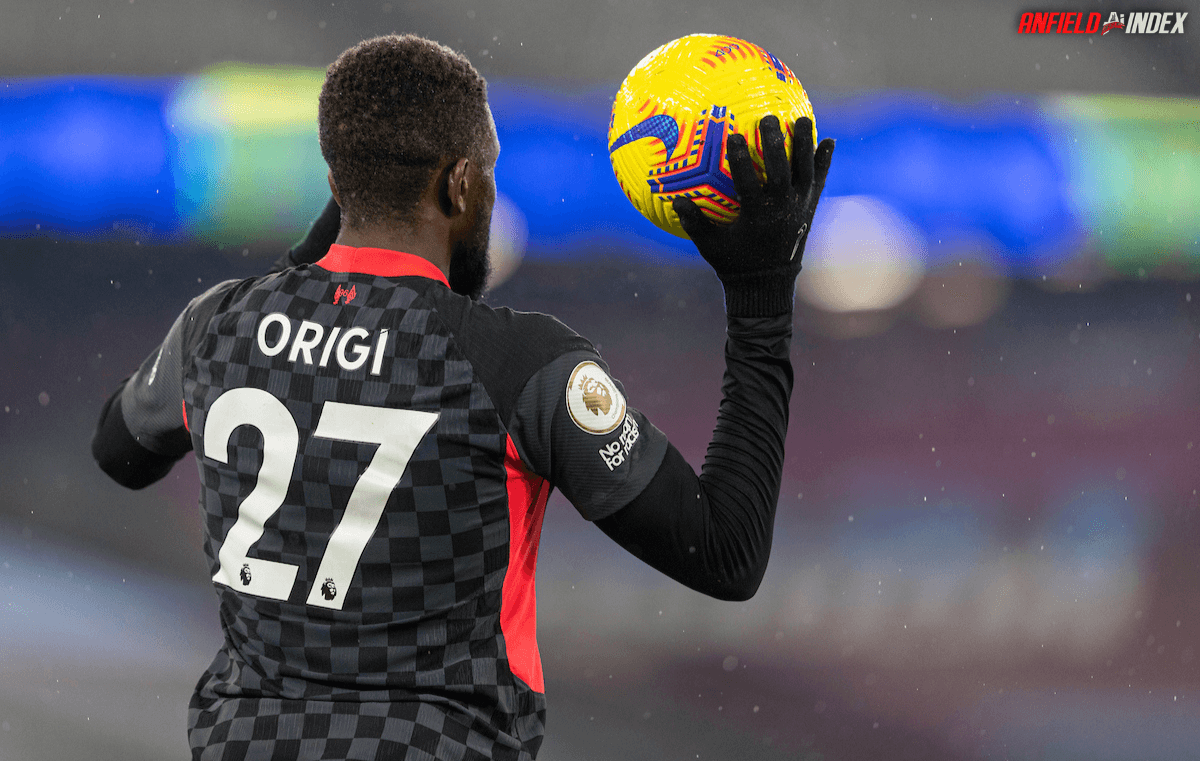By all accounts, Divock Origi’s time at Liverpool will come to an end in this summer’s transfer window.
After a brilliant end to the 2018/2019 season, where the Belgian had a telling hand in both the Reds qualifying for — with two goals in the semi-final against Barcelona — and winning — the forward’s goal put the finishing touches in the 2-0 victory over Spurs in the showpiece — the Champions League, the 26-year-old has failed to recapture that form since.
The Belgium international has only made nine Premier League appearances this season, clocking up just 181 minutes in the process, and a cutting of the ties this summer would be best for both parties.
How Liverpool replace Origi, who is — as mentioned — a peripheral player will be interesting. On paper, it should be relatively easy to replace a player who has barely played and, on the occasions he has, hasn’t set the world ablaze.
But signing squad players is often a fool’s errand and one person who will vouch for this is FC Bayern’s soon-to-depart coach Hansi Flick.
After winning a domestic and European treble in 2019/2020, the German giants — who lost Thiago Alcantara to Liverpool — looked to supplement their already brilliant squad with rotational players whose main role was to provide back up to the incumbent and established players. The arrival of Leroy Sane was the only acquisition who you could describe as being signed to go into the team, as opposed to the squad.
The Bavarians were busy in their player trading, with eight players joining the Allianz Arena team and fourteen players — including Thiago — heading to pastures new. The only new signing who could be deemed successful is Eric Maxim Choupo-Moting, and the Cameroonian has only played so frequently because of an injury to Robert Lewandowski.
The calibre of players signed was a bone of contention for Flick and, by all accounts, further fractured his relationship with the club’s sporting director, Hasan Salihamidžić, and was a factor in the former German national team assistant coach taking up the top job with his country.
Signing squad players is one of the hardest things to do in football. They need to have the required qualities as a footballer, obviously, but they also need to have the right mentality. Finding someone who is happy enough to play sporadically, but who is also good enough to be readily called upon is a rarity. Fewer still will not rock the boat if opportunities in the team aren’t coming their way quick enough.
Many coaches would likely question the mentality of someone who is just happy enough to join a club and pick up a paycheque without making a tangible on-field impression.
The ideal scenario is signing a player who can go straight into the team or at least push the current starters and make them fight for their spots. Liverpool need to be mindful of this when sourcing an Origi replacement.
Instead of signing a — just for a hypothetical example — Pedro Neto and having him regularly sat on the bench, or not at all, the Reds should sign a player, like a Dusan Vlahovic, who can challenge the established front three players, Sadio Mane, Roberto Firmino and Mohamed Salah, and Diogo Jota and also improve and gradually become the first choice pick in the attack.
That would mean that in every matchday squad — barring injuries — the Reds’ bench would contain a quality attacker, whether it’s Vlahovic or any of the front three, who would in tune with Jurgen Klopp’s demands and not necessarily have to come in cold.
In this regard, it is also more economical to sign one proven player — say, for example, they cost £30M and are paid £150,000 per week — than two squad players whose combined wages would be higher.
In football, oftentimes the best approach is to not sign squad players, but to sign players who will make your regular starters squad players, whether immediately or down the line.



